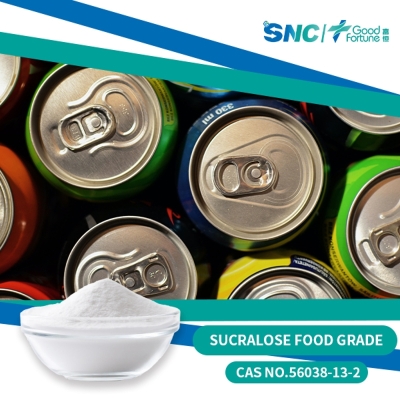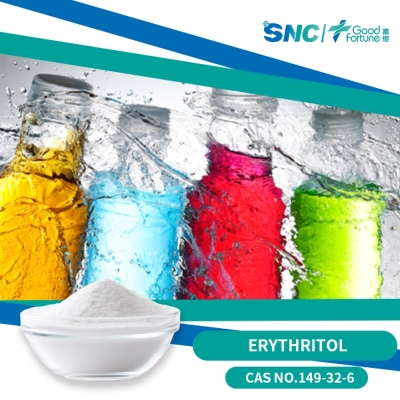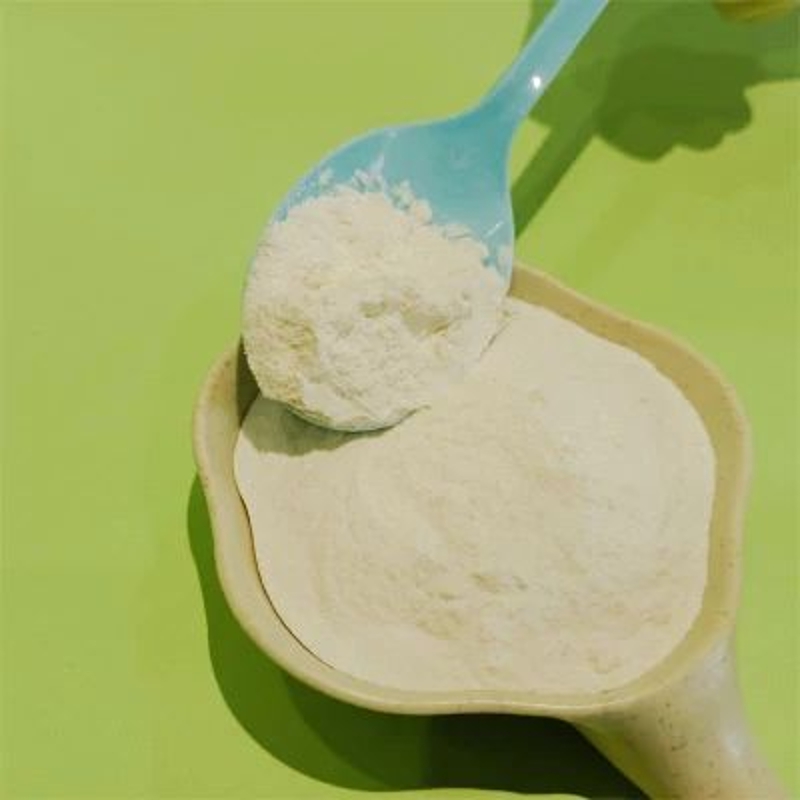-
Categories
-
Pharmaceutical Intermediates
-
Active Pharmaceutical Ingredients
-
Food Additives
- Industrial Coatings
- Agrochemicals
- Dyes and Pigments
- Surfactant
- Flavors and Fragrances
- Chemical Reagents
- Catalyst and Auxiliary
- Natural Products
- Inorganic Chemistry
-
Organic Chemistry
-
Biochemical Engineering
- Analytical Chemistry
-
Cosmetic Ingredient
- Water Treatment Chemical
-
Pharmaceutical Intermediates
Promotion
ECHEMI Mall
Wholesale
Weekly Price
Exhibition
News
-
Trade Service
With the support of the Beijing-Tianjin-Hebei project "Research on High-quality and Efficient Water-saving Technology for Fruits and Vegetables in Beijing-Tianjin-Hebei", the team of researchers Zuo Jinhua of the Institute of Vegetable Research of the Institute of Vegetables of Beijing Academy of Agriculture and Forestry Sciences and the team of Professor Christopher B.
Watkins of Cornell University jointly participated in Postharvest Biology forbid Technology (Q1) in the journal of agricultural and forestry sciences IF:6.
751) published a research paper entitled "Sugar accumulation forbid fruit quality of tomatoes under water deficit irrigation", which is based on the high sugar content tomato production model established by the team for many years, and is the first time in the world to use the method of multi-omics joint analysis to systematically study the formation of tomato fruits with a sugar content of more than 8%.
The molecular mechanism of water deficiency irrigation technology regulating the flavor quality of tomato fruit is revealed, which provides a new theoretical basis
for the improvement of fruit flavor quality.
Watkins of Cornell University jointly participated in Postharvest Biology forbid Technology (Q1) in the journal of agricultural and forestry sciences IF:6.
751) published a research paper entitled "Sugar accumulation forbid fruit quality of tomatoes under water deficit irrigation", which is based on the high sugar content tomato production model established by the team for many years, and is the first time in the world to use the method of multi-omics joint analysis to systematically study the formation of tomato fruits with a sugar content of more than 8%.
The molecular mechanism of water deficiency irrigation technology regulating the flavor quality of tomato fruit is revealed, which provides a new theoretical basis
for the improvement of fruit flavor quality.
Tomato fruit is rich in nutrition, unique taste, deeply loved by the majority of consumers, with the improvement of people's living standards, consumers put forward higher requirements
for vegetable product quality, flavor, nutrition and safety.
China's vegetable industry is changing from quantitative to qualitative type, water deficiency irrigation technology not only saves water, but also improves the flavor quality of the fruit, this research in the independent research and development of the closed inorganic matrix limited root cultivation system (invention patent: ZL201510214349.
X) on the basis of many years of research and establishment of deficit irrigation high sugar tomato production mode, the production of more than 8% of high sugar tomato.
for vegetable product quality, flavor, nutrition and safety.
China's vegetable industry is changing from quantitative to qualitative type, water deficiency irrigation technology not only saves water, but also improves the flavor quality of the fruit, this research in the independent research and development of the closed inorganic matrix limited root cultivation system (invention patent: ZL201510214349.
X) on the basis of many years of research and establishment of deficit irrigation high sugar tomato production mode, the production of more than 8% of high sugar tomato.
The research team systematically studied the regulation mechanism of tomato fruit flavor quality by combining high-throughput sequencing and bioinformatics by water deficit irrigation technology, resolved the differences in the expression profiles of mRNA and metabolites in the control group and the treatment group, and constructed a collaborative regulatory model
for the change of tomato fruit flavor quality 。 The study found that the water deficit irrigation technology mainly improves the flavor quality of tomato fruit by regulating the expression of relevant genes and metabolites in purine metabolism, glyoxylic acid and dicarboxylic acid metabolism, galactose metabolism, starch and sucrose metabolism pathways, which provides new insights for the regulation and production of high-quality tomatoes, and provides a new basis
for further studying the regulatory mechanism of the deterioration of flavor quality of high-quality tomato fruits.
for the change of tomato fruit flavor quality 。 The study found that the water deficit irrigation technology mainly improves the flavor quality of tomato fruit by regulating the expression of relevant genes and metabolites in purine metabolism, glyoxylic acid and dicarboxylic acid metabolism, galactose metabolism, starch and sucrose metabolism pathways, which provides new insights for the regulation and production of high-quality tomatoes, and provides a new basis
for further studying the regulatory mechanism of the deterioration of flavor quality of high-quality tomato fruits.
This achievement is an important scientific research progress made by the multidisciplinary team of the Beijing-Tianjin-Hebei project of the special project of scientific and technological innovation capacity building of our institute, Professor Liu Mingchi and Senior Agronomist Ji Yanhai are the co-corresponding authors of the paper, Zuo Jinhua researcher and doctoral student Bai Chunmei are the co-authors of the paper, Professor Christopher B.
Watkins of Cornell University, Professor Wang Qing, Senior Engineer Liang Hao, and Dr.
Zheng Yanyan participated in some of the work
。 The research has been funded
by the National Natural Science Foundation of China, the Beijing Municipal Science and Technology Program, the National Bulk Vegetable Industry Technology System, and the construction of the Collaborative Innovation Center of the Beijing Academy of Agriculture and Forestry Sciences.
Watkins of Cornell University, Professor Wang Qing, Senior Engineer Liang Hao, and Dr.
Zheng Yanyan participated in some of the work
。 The research has been funded
by the National Natural Science Foundation of China, the Beijing Municipal Science and Technology Program, the National Bulk Vegetable Industry Technology System, and the construction of the Collaborative Innovation Center of the Beijing Academy of Agriculture and Forestry Sciences.
With the support of the Beijing-Tianjin-Hebei project "Research on High-quality and Efficient Water-saving Technology for Fruits and Vegetables in Beijing-Tianjin-Hebei", the team of researchers Zuo Jinhua of the Institute of Vegetable Research of the Institute of Vegetables of Beijing Academy of Agriculture and Forestry Sciences and the team of Professor Christopher B.
Watkins of Cornell University jointly participated in Postharvest Biology forbid Technology (Q1) in the journal of agricultural and forestry sciences IF:6.
751) published a research paper entitled "Sugar accumulation forbid fruit quality of tomatoes under water deficit irrigation", which is based on the high sugar content tomato production model established by the team for many years, and is the first time in the world to use the method of multi-omics joint analysis to systematically study the formation of tomato fruits with a sugar content of more than 8%.
The molecular mechanism of water deficiency irrigation technology regulating the flavor quality of tomato fruit is revealed, which provides a new theoretical basis
for the improvement of fruit flavor quality.
Brix tomato sugar contentWatkins of Cornell University jointly participated in Postharvest Biology forbid Technology (Q1) in the journal of agricultural and forestry sciences IF:6.
751) published a research paper entitled "Sugar accumulation forbid fruit quality of tomatoes under water deficit irrigation", which is based on the high sugar content tomato production model established by the team for many years, and is the first time in the world to use the method of multi-omics joint analysis to systematically study the formation of tomato fruits with a sugar content of more than 8%.
The molecular mechanism of water deficiency irrigation technology regulating the flavor quality of tomato fruit is revealed, which provides a new theoretical basis
for the improvement of fruit flavor quality.
Tomato fruit is rich in nutrition, unique taste, deeply loved by the majority of consumers, with the improvement of people's living standards, consumers put forward higher requirements
for vegetable product quality, flavor, nutrition and safety.
China's vegetable industry is changing from quantitative to qualitative type, water deficiency irrigation technology not only saves water, but also improves the flavor quality of the fruit, this research in the independent research and development of the closed inorganic matrix limited root cultivation system (invention patent: ZL201510214349.
X) on the basis of many years of research and establishment of deficit irrigation high sugar tomato production mode, the production of more than 8% of high sugar tomato.
for vegetable product quality, flavor, nutrition and safety.
China's vegetable industry is changing from quantitative to qualitative type, water deficiency irrigation technology not only saves water, but also improves the flavor quality of the fruit, this research in the independent research and development of the closed inorganic matrix limited root cultivation system (invention patent: ZL201510214349.
X) on the basis of many years of research and establishment of deficit irrigation high sugar tomato production mode, the production of more than 8% of high sugar tomato.
The research team systematically studied the regulation mechanism of tomato fruit flavor quality by combining high-throughput sequencing and bioinformatics by water deficit irrigation technology, resolved the differences in the expression profiles of mRNA and metabolites in the control group and the treatment group, and constructed a collaborative regulatory model
for the change of tomato fruit flavor quality 。 The study found that the water deficit irrigation technology mainly improves the flavor quality of tomato fruit by regulating the expression of relevant genes and metabolites in purine metabolism, glyoxylic acid and dicarboxylic acid metabolism, galactose metabolism, starch and sucrose metabolism pathways, which provides new insights for the regulation and production of high-quality tomatoes, and provides a new basis
for further studying the regulatory mechanism of the deterioration of flavor quality of high-quality tomato fruits.
for the change of tomato fruit flavor quality 。 The study found that the water deficit irrigation technology mainly improves the flavor quality of tomato fruit by regulating the expression of relevant genes and metabolites in purine metabolism, glyoxylic acid and dicarboxylic acid metabolism, galactose metabolism, starch and sucrose metabolism pathways, which provides new insights for the regulation and production of high-quality tomatoes, and provides a new basis
for further studying the regulatory mechanism of the deterioration of flavor quality of high-quality tomato fruits.
This achievement is an important scientific research progress made by the multidisciplinary team of the Beijing-Tianjin-Hebei project of the special project of scientific and technological innovation capacity building of our institute, Professor Liu Mingchi and Senior Agronomist Ji Yanhai are the co-corresponding authors of the paper, Zuo Jinhua researcher and doctoral student Bai Chunmei are the co-authors of the paper, Professor Christopher B.
Watkins of Cornell University, Professor Wang Qing, Senior Engineer Liang Hao, and Dr.
Zheng Yanyan participated in some of the work
。 The research has been funded
by the National Natural Science Foundation of China, the Beijing Municipal Science and Technology Program, the National Bulk Vegetable Industry Technology System, and the construction of the Collaborative Innovation Center of the Beijing Academy of Agriculture and Forestry Sciences.
Watkins of Cornell University, Professor Wang Qing, Senior Engineer Liang Hao, and Dr.
Zheng Yanyan participated in some of the work
。 The research has been funded
by the National Natural Science Foundation of China, the Beijing Municipal Science and Technology Program, the National Bulk Vegetable Industry Technology System, and the construction of the Collaborative Innovation Center of the Beijing Academy of Agriculture and Forestry Sciences.







